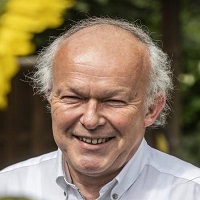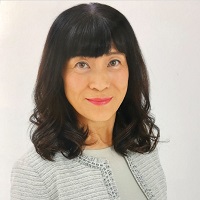Prof. Jozef Colpaert
 Professor Jozef Colpaert teaches Computer Assisted Language Learning, Instructional Design and Educational Technology at the Faculty of Social Sciences and the Antwerp School of Education of the University of Antwerp, Belgium. His research focuses on affordances, multimodal design of learning environments, motivational task design, transdisciplinarity, and natural language decoding. He is editor-in-chief of Computer Assisted Language Learning (Taylor and Francis) and has been organizing the International CALL Research Conferences (www.call2022.org) for the past 20 years.
Professor Jozef Colpaert teaches Computer Assisted Language Learning, Instructional Design and Educational Technology at the Faculty of Social Sciences and the Antwerp School of Education of the University of Antwerp, Belgium. His research focuses on affordances, multimodal design of learning environments, motivational task design, transdisciplinarity, and natural language decoding. He is editor-in-chief of Computer Assisted Language Learning (Taylor and Francis) and has been organizing the International CALL Research Conferences (www.call2022.org) for the past 20 years.
The title of the talk: The future of CALL research
After 40 years in the field, Jozef Colpaert will try to formulate his vision for the future of CALL Research, as a linguist, language teacher, designer, researcher, journal editor and conference organizer. Starting points for his keynote are frequently asked questions such as: Has the term CALL become obsolete? Is there a dedicated research method for language learning? How to cope with the multidisciplinarity problem in CALL? His first point will be that CALL should be seen as a transdisciplinary activity. Transdisciplinarity is defined as the “ontological specification of knowledge constructs on a higher, boundary-transcending, level of abstraction”. CALL is not a subdiscipline among so many others, but an overarching discipline where new concepts and methods are built to bring related disciplines together. One of the biggest challenges in this regard is pervasive yet persuasive terminology. Jozef Colpaert will show how and why terms such as flipped classrooms, blended learning, digital skills, virtual exchanges and artificial intelligence are poorly defined and put language teachers under pressure. A second challenge in CALL research lies at the level of research methods: engineering and design are still not recognized as fully-fledged research methods. The role of scholarly journals is to encourage dedicated research methods such as design, promote accurate and substantiated terminology, intensify international exchanges and support authors in publishing the article they deserve. Jozef Colpaert will conclude by stating that we may have to look for a better acronym for CALL, but that the future of CALL research looks promising.
Dr. Noriko Uosaki
 Dr. Noriko Uosaki is an associated professor at the Center for International Education and Exchange, Osaka University, Japan, and was a visiting lecturer at University of Illinois at Urbana-Champaign, USA. Her research interests include MALL (Mobile Assisted Language Learning), Seamless Learning, CALL (Computer Assisted Language Learning), Computer Supported Ubiquitous and Mobile Learning, CSCL (Computer Supported Collaborative Learning), and TESL (Teaching English as a Second Language). She has published about 75 peer-reviewed papers. She is a member of JSET, IEEE, and APSCE.
Dr. Noriko Uosaki is an associated professor at the Center for International Education and Exchange, Osaka University, Japan, and was a visiting lecturer at University of Illinois at Urbana-Champaign, USA. Her research interests include MALL (Mobile Assisted Language Learning), Seamless Learning, CALL (Computer Assisted Language Learning), Computer Supported Ubiquitous and Mobile Learning, CSCL (Computer Supported Collaborative Learning), and TESL (Teaching English as a Second Language). She has published about 75 peer-reviewed papers. She is a member of JSET, IEEE, and APSCE.
The title of the talk: Technology Enhanced Seamless Language Learning Environment
The breakthrough of IT technology over the decades has accelerated the evolutionary change in teaching/learning methodologies. Among them, it is noteworthy that the proliferation of smartphones has brought about a new learning environment called seamless learning. Various learning systems with cutting edge technologies such as learning analytics, virtual reality and augmented reality have been developed to implement this new learning environment. Seamless learning has been drawn researchers' attention mainly because it is expected to contribute to bridging in-class learning with out-of-class learning. Another reason is that it could be the key to solve the lack of in-class learning time. This derives from that fact that in-class learning time is overwhelmingly insufficient especially in the field of second language learning. This talk undertakes a review of past literature, provides a clear understanding of seamless learning, and explores 'best fit' between organization needs and system functionalities in the context of seamless language learning environment.








